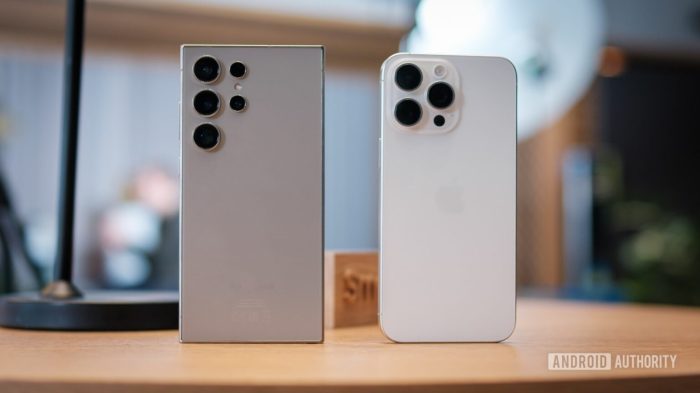Overview of User Privacy in Technology: Compare IPhone Vs Samsung For User Privacy
User privacy has become a pivotal concern in the age of smartphones, where personal data is often just a click away. In the context of smartphones, user privacy refers to the rights of individuals to control the collection, storage, and sharing of their personal information. As smartphone users increasingly rely on these devices for day-to-day activities, the importance of safeguarding their privacy cannot be overstated. With privacy regulations becoming stricter globally, smartphone manufacturers are compelled to adapt their practices to comply with new laws, making user privacy a crucial aspect of their offerings.
Privacy Features of iPhone
Apple has consistently positioned itself as a leader in user privacy through its iOS platform. Privacy protections like App Tracking Transparency allow users to decide whether or not they want apps to track their data across other applications and websites. Furthermore, Apple employs advanced data encryption methods that ensure user data remains secure and inaccessible to unauthorized parties.
The significance of these encryption methods lies in their ability to protect sensitive information. For instance, end-to-end encryption is utilized in services like iMessage and FaceTime, guaranteeing that only the sender and recipient can access the content of their conversations. Users are also provided with robust control options within the iPhone settings to manage their privacy preferences, including controlling app permissions and limiting ad tracking.
Privacy Features of Samsung
Samsung has integrated a variety of privacy features into its One UI interface, prioritizing user security. Features like Secure Folder enable users to store sensitive files and apps in a separate, encrypted space, enhancing data security. Samsung’s approach to data security also includes hardware-level encryption, ensuring that information stored on the device is protected from potential breaches.
Users of Samsung devices benefit from a range of privacy controls that allow them to manage app permissions, similar to Apple’s offerings. This includes options to restrict access to location data and contact lists, empowering users to have greater control over their personal information.
Data Collection Practices
When it comes to data collection practices, Apple and Samsung take different approaches. Apple emphasizes a minimalistic data collection policy, often highlighting that they collect only what is necessary for delivering services. Conversely, Samsung’s data collection tends to be more extensive, focusing on enhancing user experience through personalized services.
Both companies utilize collected data for app personalization, enhancing user experience while ensuring that users are informed about how their data is used. Transparency is a key focus for both brands, with Apple providing clear insights into their data practices through its privacy policy disclosures, while Samsung has made strides in improving its transparency surrounding data collection practices.
Third-Party App Privacy

Apple enforces strict policies on third-party apps, ensuring that user data is protected from misuse. The company mandates that apps disclose their data collection practices, allowing users to make informed choices. This level of scrutiny helps maintain a higher standard of privacy for iPhone users.
Samsung, while also prioritizing user security, adopts a more flexible approach to third-party app permissions. Users are encouraged to review and manage app permissions, but the oversight may not be as stringent as Apple’s. Common privacy compromises exist on both platforms, where third-party apps may access more data than users realize, highlighting the need for vigilance from users.
User Perception and Trust
User sentiment towards Apple’s privacy marketing strategies has generally been positive, with many consumers appreciating the company’s proactive stance on privacy. Apple’s “Privacy is a fundamental human right” slogan resonates with users, strengthening their trust in the brand.
On the other hand, market surveys indicate varying user trust levels in Samsung’s privacy measures. While some users express confidence in Samsung’s security protocols, others remain cautious due to past incidents of data breaches. A comparison table showcasing user trust levels highlights these perceptions:
| Brand | User Trust Level |
|---|---|
| Apple | High |
| Samsung | Moderate |
Case Studies of Privacy Breaches, Compare iPhone vs Samsung for User Privacy
Privacy breaches have affected both iPhone and Samsung users, prompting responses from each company. Notable incidents involving iPhone users include the 2019 iCloud breach, where unauthorized access to celebrity accounts raised questions about Apple’s security measures. In response, Apple intensified its focus on security features and user education.
Similarly, Samsung has faced privacy concerns, notably the 2020 incident where vulnerabilities in the Galaxy series were exploited. Samsung addressed these concerns by enhancing security updates and improving its device management protocols. A case study table illustrating these privacy breaches and responses further highlights the differences in how both companies tackle these challenges:
| Company | Incident | Response |
|---|---|---|
| Apple | iCloud breach | Enhanced security features |
| Samsung | Galaxy series vulnerability | Improved security updates |
Future of User Privacy in Smartphones
The future of user privacy in smartphones is shaped by emerging trends in technology, such as increased use of artificial intelligence for data protection and the rise of decentralized data storage solutions. Apple and Samsung are expected to adapt their privacy policies to incorporate these advancements, with a focus on providing users with more control over their information.
In the next five years, both companies might face challenges concerning user privacy, particularly as regulatory scrutiny intensifies. The integration of more sophisticated privacy features and transparent data handling practices will likely be essential in maintaining user trust and complying with evolving privacy laws.